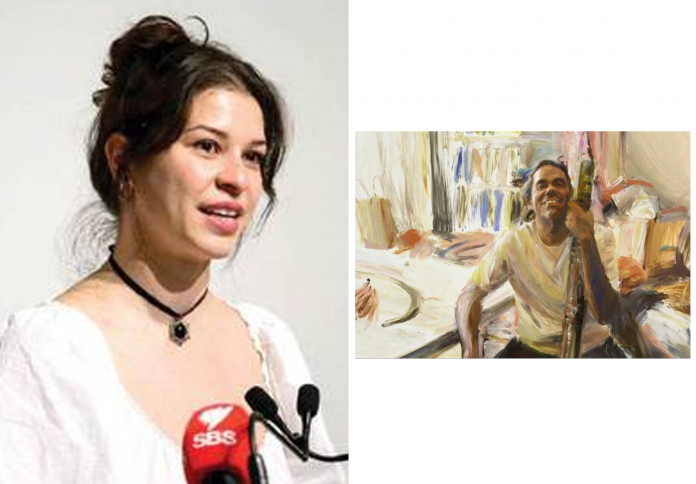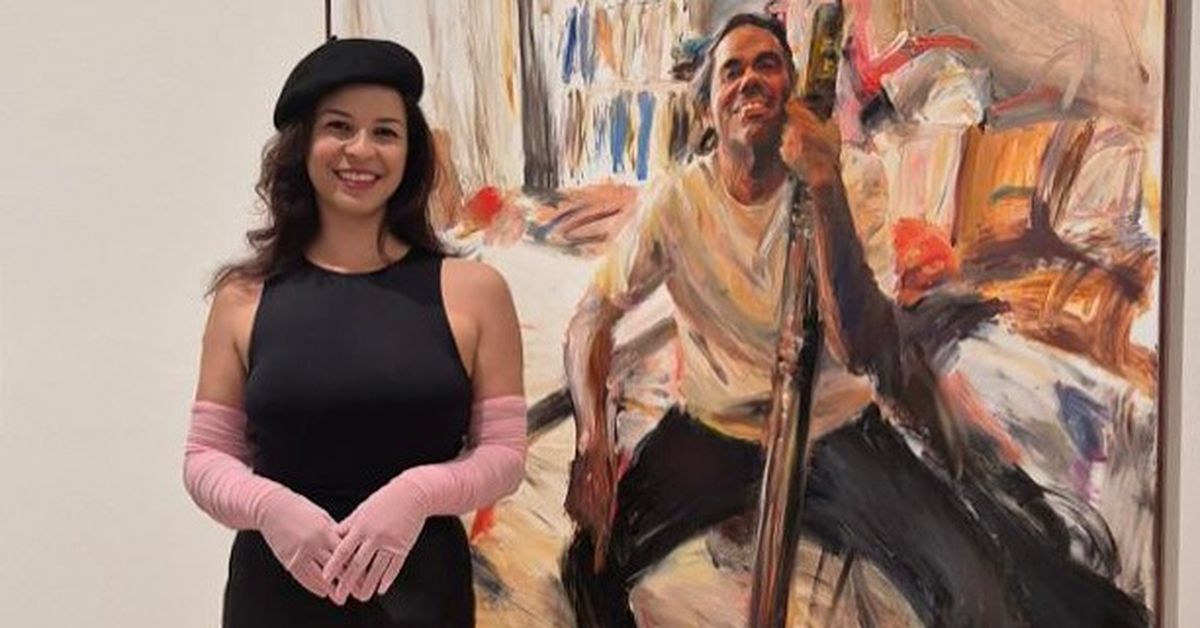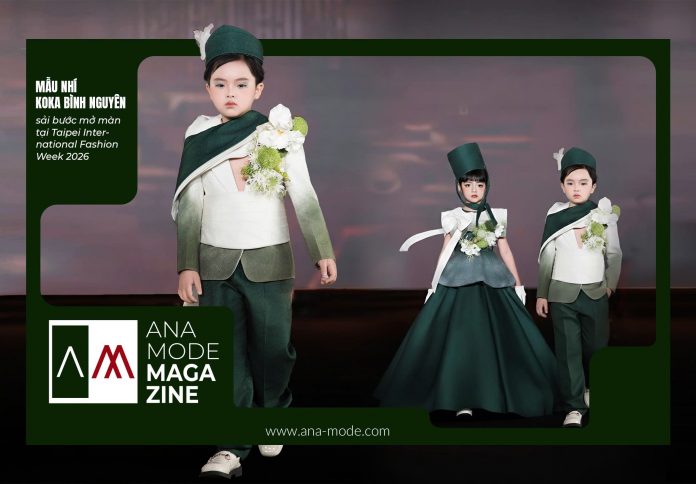Loribelle Spirovski didn’t just paint with color—she painted with resilience. Overcoming a nerve injury that once made holding a brush unbearable, the Filipina-Australian artist dipped her fingers directly into paint and created a portrait so powerful it captured the hearts of thousands. Her depiction of Aboriginal musician William Barton has now won the 2025 Archibald Prize People’s Choice Award, making her not just an acclaimed finalist once again, but a symbol of what it means to create through pain, passion, and profound connection.
An artist’s body becomes her brush
When Spirovski first met William Barton in October last year, she was still healing. A nerve injury had rendered traditional painting techniques excruciating. But as she listened to Barton’s music—evocative, fluid, spiritual—something within her shifted. The brush fell away, and her fingers reached for the paint.
“Without a brush, painting was almost painless,” she reflected. “As the portrait painted itself, I felt alive in a way I hadn’t for a very long time.” Her body, formerly a limitation, became the instrument. In bypassing the brush, Spirovski reconnected with instinct, gesture, and tactility—creating a portrait that is not only expressive but also deeply physical.
The result is a work layered with texture and intimacy, one that feels sculpted more than painted, as if her fingertips recorded emotion directly onto the canvas. It is art as process, therapy, and triumph.
A meeting of artistic spirits
William Barton, the subject of the portrait, is no ordinary muse. A revered Aboriginal Australian musician, he is known for blending traditional didgeridoo with classical orchestration. His music, like Spirovski’s work, defies categorization—it is ancient and contemporary, solemn and soaring.
In choosing Barton as her subject, Spirovski chose not only a fellow artist, but a figure of deep cultural resonance. Their creative exchange was more than transactional; it was symbiotic. His music became the rhythm of her hands, and her portrait became a tribute to his sound, heritage, and strength.
“I am infinitely grateful to William for allowing me to paint him,” she shared. “And so humbled by everyone’s response.” That response has been resounding: gallery-goers voted her work their favorite among the year’s finalists, granting her the People’s Choice Award and solidifying her position as one of the most emotive portraitists of her generation.
A journey shaped by diaspora and duality
Born in the Philippines in 1990 to a Filipino mother and Serbian father, Spirovski moved to Australia at the age of nine. Her practice has always reflected a tension between origins and destinations—between European melancholy and Asian warmth, between displacement and belonging.
Graduating from Sydney’s College of Fine Arts in 2012, she quickly established herself with portraits that shimmer between realism and abstraction, revealing not just likenesses but inner worlds. On her website, she describes her aesthetic as shaped by “the contrasting images of both countries,” and indeed, her subjects often appear caught in the space between clarity and distortion—human and dreamlike.
The tactile intimacy of her recent portrait is not just a response to injury, but also an extension of this lifelong navigation through in-betweens. It speaks of skin memory, of culture inherited through touch, and of the body as archive.
Recognition, redemption, and the power of public voice
The Archibald Prize is Australia’s most prestigious portrait award, and while its main prize this year went to Julie Fragar, Spirovski’s People’s Choice win carries its own weight. Chosen by visitors to the Art Gallery of New South Wales, the award reflects not just curatorial judgment, but public emotion. It is a declaration that art born of struggle, made in unconventional ways, still resonates deeply.
Spirovski has been a finalist multiple times, but this win feels particularly symbolic. It crowns a period of personal adversity with public affirmation. It also raises important questions about how we define “mastery” in art—reminding us that vulnerability, improvisation, and physical limitation can give rise to radical beauty.
In a year where two out of the three major Archibald awards went to women—Fragar for the main prize, Spirovski for the People’s Choice, and Abdul Abdullah receiving the Packing Room Prize—the landscape of Australian portraiture feels notably more inclusive, experimental, and resonant with the times.













